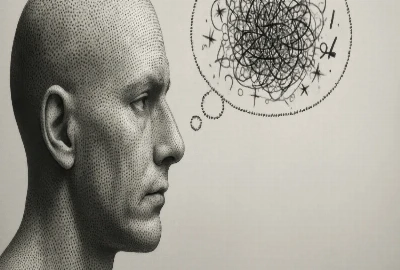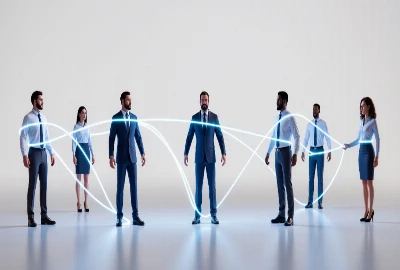Cultural Algorithms: Local AI, Global Stories

Artificial intelligence is no longer just a back-end tool powering recommendations and personalization. It’s now an active agent in shaping the stories we consume and the stories we create. At the heart of this evolution lies the concept of cultural algorithms—AI systems trained on local data, traditions, and languages that contribute to narratives capable of resonating across global audiences.
The term “cultural algorithms” suggests more than technical design; it embodies the intersection of culture, identity, and artificial intelligence. As AI learns from regional content, it doesn’t just reflect culture—it reframes it, translating local storytelling traditions into global contexts. This phenomenon raises exciting possibilities: more authentic voices in entertainment, greater inclusivity in narratives, and the breaking down of long-standing cultural silos in global media.
This blog explores how local AI is reshaping global stories, the opportunities and challenges it presents, and what it means for creators, platforms, and audiences navigating an increasingly interconnected storytelling ecosystem.
Defining Cultural Algorithms: AI Beyond the Technical

When we talk about algorithms, the conversation often centers on technical aspects like machine learning, natural language processing, or recommendation engines. However, cultural algorithms refer to the ways AI learns from and reflects local culture, values, and traditions.
Local AI as cultural translators
AI models trained on local data become cultural translators. For example, a recommendation system trained on Nollywood films in Nigeria won’t just promote local cinema—it will also carry forward narrative patterns, humor, and pacing styles unique to that culture.
Shaping narrative norms
By amplifying certain content, cultural algorithms can establish what’s considered mainstream. In India, for example, AI-curated platforms highlight regional films that might otherwise remain niche, giving them broader recognition.
Beyond content discovery
Cultural algorithms don’t just recommend stories—they influence how stories are produced. Script-writing AI tools trained on Korean dramas, for example, might generate plot arcs familiar to K-drama audiences but novel to Western viewers.
By framing AI as cultural rather than purely technical, we can see how algorithms are actively redefining global storytelling norms.
Local Data, Global Reach: How AI Scales Culture

One of the most powerful aspects of cultural algorithms is their ability to scale local narratives to global platforms.
From niche to global phenomenon
Korean dramas, Japanese anime, and Turkish soap operas have gained international audiences thanks in part to AI-powered recommendation systems. These systems identify patterns in viewer behavior and promote local content globally, creating unexpected hits.
Subtitling and translation powered by AI
Local stories can only become global if they’re accessible. Advances in natural language processing have made real-time subtitling and dubbing more seamless, enabling stories to transcend language barriers. AI isn’t just translating words—it’s capturing nuance, tone, and cultural context.
Algorithmic amplification
Streaming giants like Netflix, Disney+, and Amazon Prime use AI to recommend localized shows to international viewers. These algorithms are cultural amplifiers, ensuring that regional narratives have pathways to global recognition.
This dynamic allows local storytelling traditions to flow outward, reshaping global entertainment landscapes and diversifying the stories audiences encounter.
The Role of Cultural Algorithms in Representation

Representation has been a persistent issue in global media, with dominant industries often overshadowing marginalized voices. Cultural algorithms open doors for more inclusive storytelling.
Empowering local creators
AI trained on regional datasets can help small creators find audiences beyond their borders. For instance, African content platforms leverage AI to recommend local films globally, bypassing traditional distribution bottlenecks.
Nuanced representation of identity
Instead of one-dimensional portrayals shaped by Western norms, cultural algorithms can help preserve authenticity by elevating native voices and narratives. A Latin American AI system trained on regional storytelling styles might highlight complex family dynamics or indigenous traditions, broadening representation.
Correcting historical imbalances
By promoting diverse voices, cultural algorithms help correct media imbalances. Audiences no longer have to rely on Hollywood’s interpretations of foreign cultures; they can access stories created by those cultures themselves.
Here, AI becomes a cultural equalizer, leveling the playing field for voices that might otherwise go unheard.
Challenges and Risks of Cultural Algorithms

While the potential is promising, cultural algorithms also raise significant challenges.
Risk of cultural homogenization
Paradoxically, the same AI systems that amplify diversity can also flatten it. Algorithms may prioritize content that performs well globally, nudging local creators to adapt their narratives to fit global trends, potentially diluting authenticity.
Algorithmic bias
AI systems inherit biases from the data they’re trained on. If local datasets are incomplete, stereotyped, or skewed, the algorithms may reinforce harmful narratives rather than challenging them.
Commercialization of culture
Global platforms often monetize local content without ensuring fair compensation for creators. This dynamic risks exploiting culture as a commodity, where algorithms extract value from local traditions without reinvesting in them.
Recognizing these risks is crucial for ensuring that cultural algorithms serve as bridges rather than barriers.
Actionable Strategies for Ethical and Inclusive Cultural AI

For cultural algorithms to fulfill their potential, creators, platforms, and policymakers must adopt strategies that promote ethical, inclusive, and culturally sensitive AI use.
Training on diverse datasets
AI systems should be trained on diverse and representative datasets that include voices across languages, genders, and regions. This prevents the reinforcement of narrow cultural perspectives.
Transparency and accountability
Platforms must be transparent about how their algorithms promote or suppress content. Providing visibility into AI’s decision-making processes ensures accountability and trust.
Collaboration with local creators
Partnerships with local artists, writers, and communities ensure that cultural authenticity is maintained. AI should augment—not replace—human creativity, particularly in storytelling.
By adopting these practices, stakeholders can align AI innovation with cultural respect and inclusivity.
The Future of Global Storytelling with Cultural Algorithms

As AI becomes more embedded in creative industries, cultural algorithms will continue shaping the future of global narratives.
Hyper-personalized storytelling
Imagine an AI system capable of crafting personalized story arcs based on cultural preferences, blending global accessibility with local nuance.
Transnational co-creation
Cultural algorithms could enable collaborative storytelling across borders, where creators from different regions use AI to co-develop narratives that integrate multiple cultural perspectives.
Redefining global media power
The dominance of Hollywood and Western storytelling may give way to a more polycentric media ecosystem where cultural algorithms enable diverse regions to rise as narrative powerhouses.
The future promises a storytelling landscape where local traditions don’t just survive but thrive on global platforms, thanks to the role of AI as both translator and amplifier.




